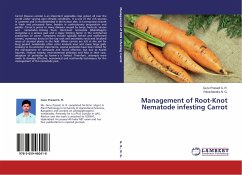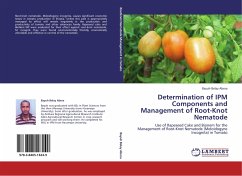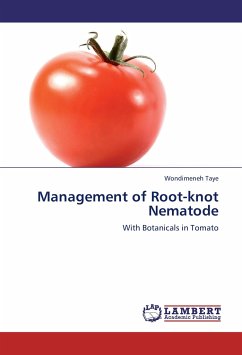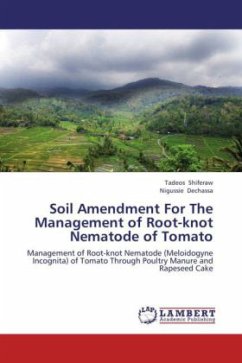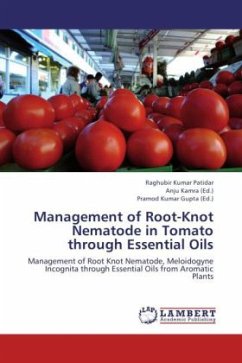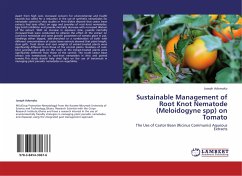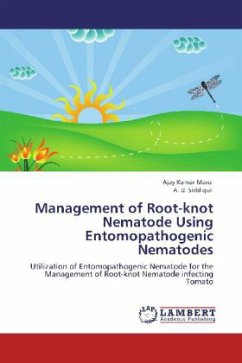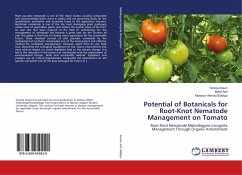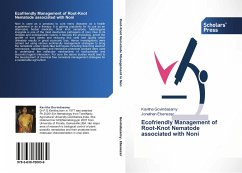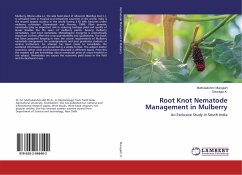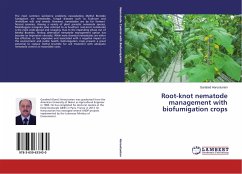
Root-knot nematode management with biofumigation crops
Versandkostenfrei!
Versandfertig in 6-10 Tagen
41,99 €
inkl. MwSt.

PAYBACK Punkte
21 °P sammeln!
The most common soil-borne problems necessitating Methyl Bromide fumigation are nematodes, fungal diseases such as Fusarium and Verticillium wilt and weeds. However, nematodes are by far farmers' fiercest enemies. Among a variety of plant parasitic nematode species, Meloidogyne incognita (also referred to as Southern root-knot nematode) is the most wide-spread and ravaging. Due to the impending phase out of Methyl Bromide, finding alternative nematode management option has become an imperative necessity. While most chemical nematicides are either less effective, or too expensive and associated...
The most common soil-borne problems necessitating Methyl Bromide fumigation are nematodes, fungal diseases such as Fusarium and Verticillium wilt and weeds. However, nematodes are by far farmers' fiercest enemies. Among a variety of plant parasitic nematode species, Meloidogyne incognita (also referred to as Southern root-knot nematode) is the most wide-spread and ravaging. Due to the impending phase out of Methyl Bromide, finding alternative nematode management option has become an imperative necessity. While most chemical nematicides are either less effective, or too expensive and associated with a negative impact on the environment and public health, biofumigation crops present a great potential to replace methyl bromide for soil treatment with adequate nematode control at reasonable costs.



